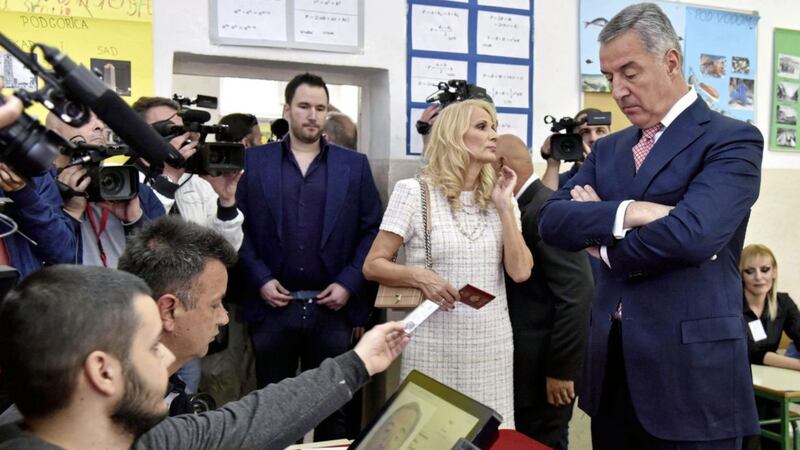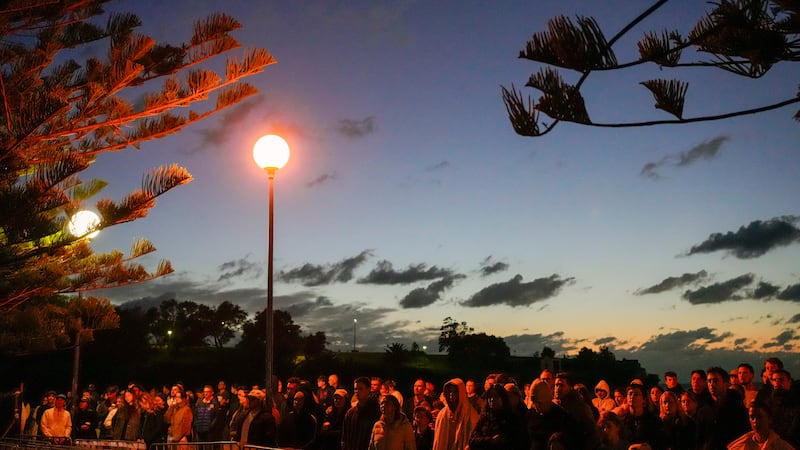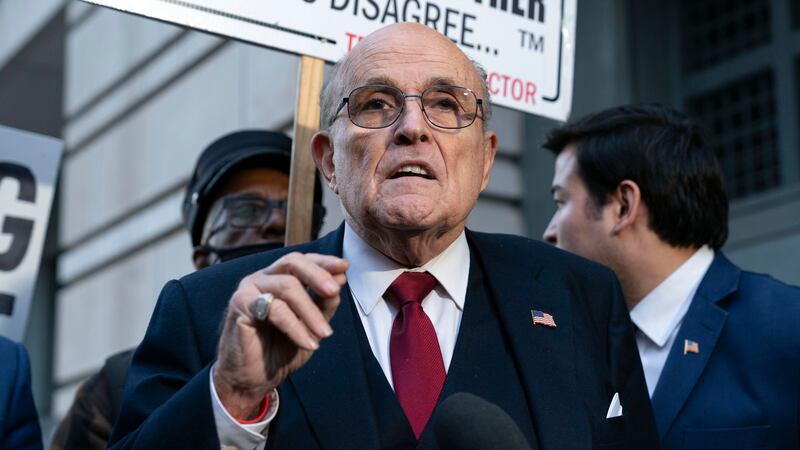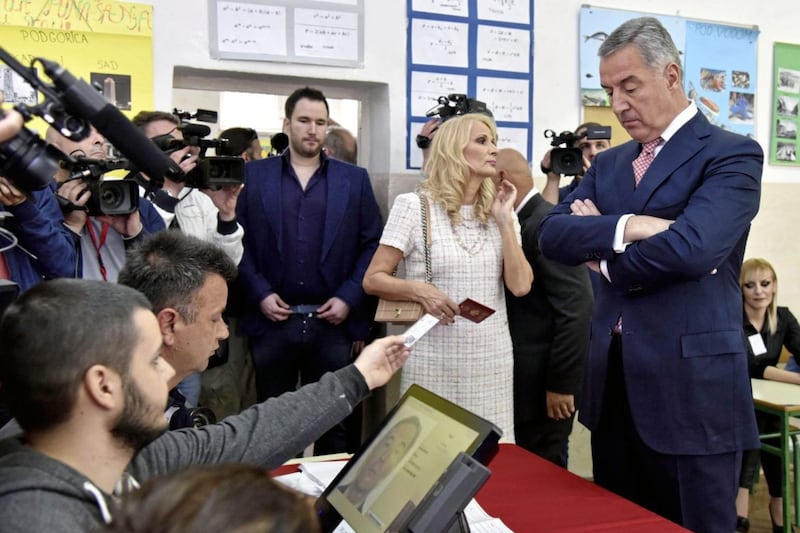Montenegro's ruling party leader Milo Djukanovic swept to victory in a presidential election on Sunday, preliminary results have shown.
He pledged to keep the small Balkan country firmly on a European path after it joined Nato last year in defiance of Russia.
Mr Djukanovic won 54 per cent of the ballots, securing a victory in the first round and avoiding a runoff, according to results released by the independent Centre for Monitoring and Research.
His main opponent, Mladen Bojanic, won 33 per cent.
If confirmed in the official vote count, the result will present a major boost for Mr Djukanovic and his ruling Democratic Party of Socialists.
Sunday's vote, the first since Montenegro joined the western military alliance in December, was seen as a test for Djukanovic, who favours European integration over closer ties to traditional ally Moscow.
"We have accomplished an important victory for [Montenegro's] European future," Mr Djukanovic told cheering supporters, adding he saw the triumph "as the confirmation of Montenegro's strong determination to continue on the European road".
Mr Djukanovic's party earlier declared him the winner as supporters took to the streets to celebrate.
Crowds drove in cars around the capital, Podgorica, honking horns and waving flags as fireworks lit the sky.
Challenger Mr Bojanic, who was backed by several opposition groups, including pro-Russian ones, vowed to continue his struggle against Mr Djukanovic, describing him as "the man holding Montenegro and its institutions hostage".
Mr Djukanovic, the country's dominant politician, and his party have ruled Montenegro for nearly 30 years.
About 530,000 voters were voting in the Adriatic Sea nation that used to be part of Yugoslavia.
For the first time in the staunchly conservative nation, a female candidate also ran for the presidency, winning 8 per cent of the vote.
Mr Djukanovic has served both as prime minister and president in several mandates since becoming the youngest head of government in Europe at the age of 29 in 1991.
He was prime minister during a tense October 2016 parliamentary election when authorities said they thwarted a pro-Russian coup attempt designed to prevent the country from joining Nato.
Djukanovic led Montenegro to independence from much-larger Serbia in 2006 and was behind the Nato bid, which Moscow strongly opposed.
He promised on Sunday to work to overcome divisions within Montenegro, a predominantly Orthodox Christian Slavic nation where many still cherish historic links to Russia.
Mr Bojanic, an economic expert, has accused the ruling party of corruption and links to organised crime following a rise in crime-related violence.
The fractured opposition parties supporting Mr Bojanic include the pro-Russian Democratic Front, whose two main leaders are on trial for taking part in the alleged 2016 coup attempt.
Two Russian citizens also are being tried in absentia for the plot, which prosecutors said included a plan to assassinate Mr Djukanovic.
The Kremlin has denied involvement.




